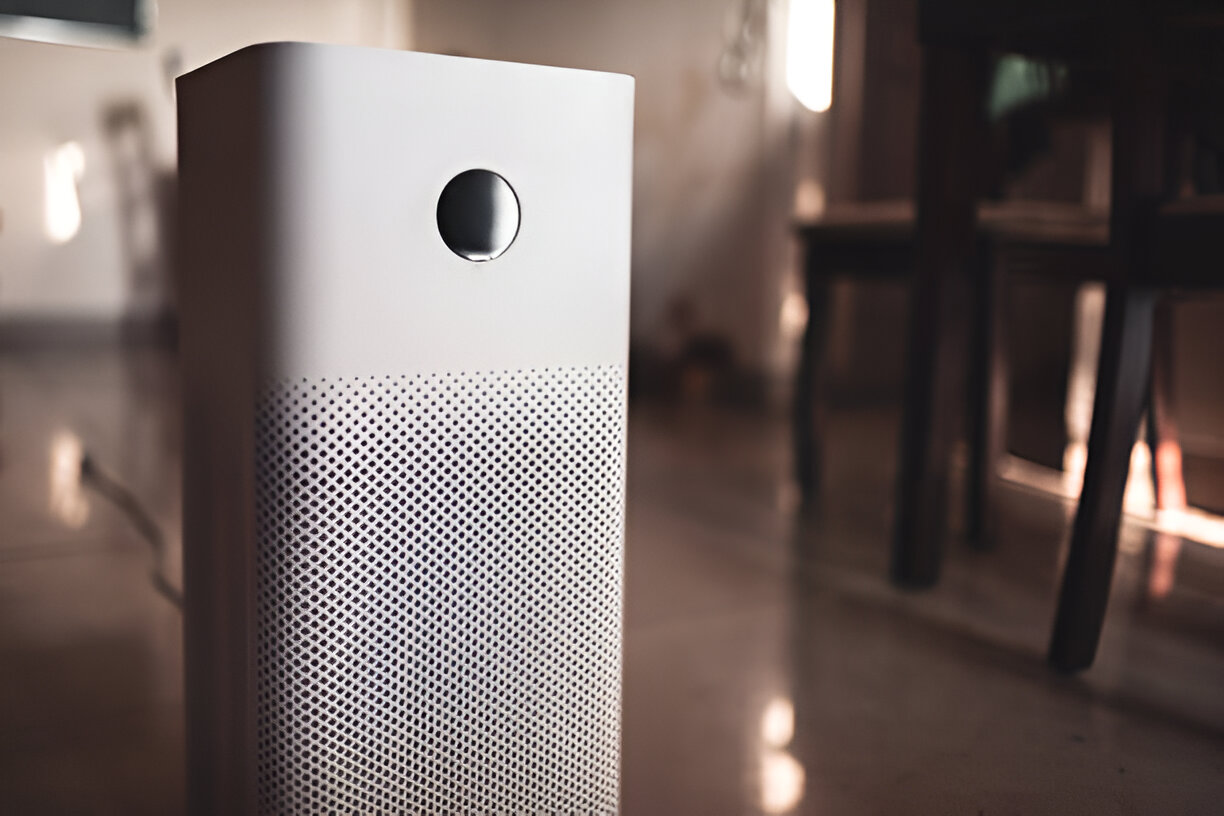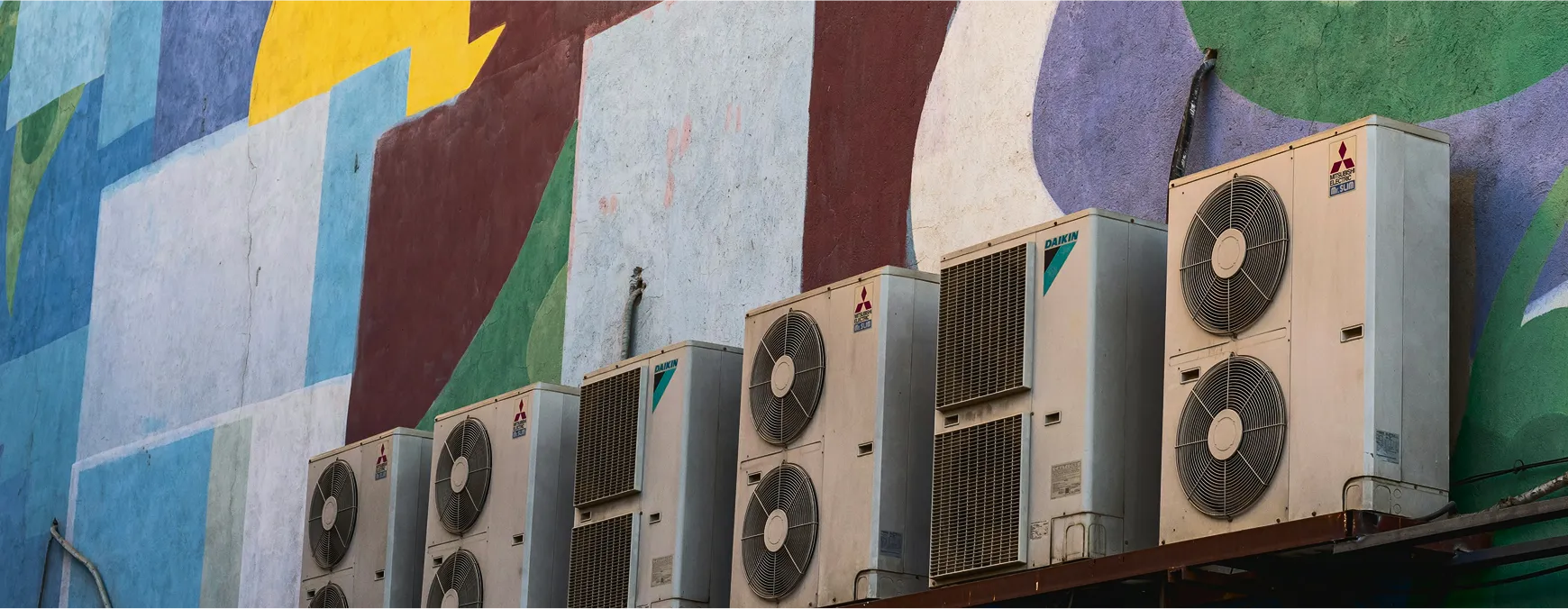Understanding MERV, HEPA, and Advanced Air Filtration Technologies
Upgrade your air quality knowledge! MERV vs. HEPA: Which filter is right for your home? Our guide breaks down the efficiency, pros, and cons to help you breathe easier. Find your perfect fit!

MERV vs. HEPA: The Homeowner’s Complete Guide to Cleaner Indoor Air
Choosing the right air filter can feel like deciphering a secret code. You see acronyms like MERV and HEPA, numbers from 1 to 20, and claims about capturing everything from dust to viruses. It’s easy to feel overwhelmed, stuck between wanting the cleanest air possible and worrying about making a costly mistake that could damage your HVAC system.
This isn't just about picking a filter off the shelf. It's about making a confident decision for your family's health and your home's efficiency.
At Goode Air Conditioning & Heating, we've spent over four decades helping Houston-area families navigate these choices. We believe in empowering you with clear, honest information. This guide cuts through the noise, translating the technical jargon into practical advice so you can find the perfect balance of air filtration, energy efficiency, and system safety for your home.
What Do Air Filter Ratings Actually Mean?
Before we compare, let's establish a clear baseline. When we talk about filter ratings, we're really talking about one thing: how effectively they capture airborne particles of different sizes.
- Micron: This is the unit of measurement. One micron (µm) is one-millionth of a meter. For context, a human hair is about 50-70 microns thick. The particles we're trying to stop—like dust mite debris, pet dander, bacteria, and smoke—are often much, much smaller.
- MERV (Minimum Efficiency Reporting Value): This is the standard rating system for HVAC filters, ranging from 1 to 20. A higher MERV number means the filter is more effective at capturing smaller particles.
- HEPA (High-Efficiency Particulate Air): This is not a MERV rating but a strict performance standard. A filter must meet this standard to be called "true HEPA."
The key takeaway is that both systems measure particle capture efficiency, but they are used in different contexts. MERV is for your home's central HVAC system, while HEPA is typically found in standalone air purifiers or specialized medical-grade systems.
Decoding the Ratings: A Side-by-Side Look at MERV and HEPA
This is where homeowners often get stuck. Let's break down the real-world differences.
MERV-Rated Filters: Your HVAC System’s First Line of Defense
MERV ratings were designed to give consumers a simple way to compare the effectiveness of different filters. The scale is progressive—as the number goes up, so does the filter's ability to trap smaller particles.
- MERV 1-4: Basic filtration. These filters protect your HVAC unit from large debris like carpet fibers and dust bunnies but do little for your air quality.
- MERV 5-8: Good residential filtration. This is the sweet spot for most homes without specific air quality concerns. They capture mold spores, pollen, and dust mite debris.
- MERV 9-12: Better filtration. These are excellent for households with mild allergies or pets, as they trap finer particles like pet dander.
- MERV 13-16: Superior residential filtration. These filters can capture bacteria, smoke, and some virus-carrying particles. They offer fantastic air cleaning but introduce a critical concern we'll cover next: airflow.
HEPA Filters: The Gold Standard for Particle Capture
HEPA is a certification, not just a rating. To earn the "true HEPA" label in the United States, a filter must be proven to remove at least 99.97% of airborne particles with a size of 0.3 microns.
This 0.3-micron size is crucial. Scientists identified it as the "most penetrating particle size" (MPPS)—the hardest particle size for filters to catch. Because of the physics of air filtration, particles both larger and smaller than 0.3 microns are captured with even higher efficiency. This is why HEPA filters are so effective at trapping tiny virus particles (often around 0.1 microns) through a process called diffusion.
If HEPA filters were graded on the MERV scale, they would be rated MERV 17 or higher.
The Core Decision: Upgrade Your HVAC Filter or Buy a Standalone HEPA Purifier?
This is the central question for any homeowner serious about air quality. You're trying to solve a problem—allergies, pet odors, or general dust—and you need the right tool for the job.
Here’s a simple framework to guide your decision:
Choose a higher-MERV HVAC filter if:
- Your primary goal is to improve general air quality throughout your entire home.
- You have mild to moderate allergies or sensitivities.
- Your HVAC system is modern and can handle the increased airflow resistance (more on this in a moment).
- You prefer a single, integrated solution without needing another appliance.
Choose a standalone HEPA air purifier if:
- Your air quality concerns are concentrated in a specific room, like a bedroom or home office.
- Someone in your home has severe allergies, asthma, or a compromised immune system.
- You need to remove pet odors, smoke, or VOCs (volatile organic compounds), which requires the activated carbon filters often paired with HEPA filters.
- Your HVAC system is older or you're unsure if it can handle a high-MERV filter.
For many, the ultimate solution is a hybrid approach: using a good quality MERV 8-11 filter in your HVAC system to protect the equipment and provide a baseline of clean air, combined with a targeted HEPA purifier in the rooms where you spend the most time.
Will a High-MERV Filter Damage My HVAC System? A Word of Caution
This is the most important consideration when upgrading your filter, and it addresses the hidden fear many homeowners have of making a costly mistake.
Think of your HVAC system like a person breathing. A dense, high-MERV filter is like trying to breathe through a thick cloth. It makes your system work much harder to pull air through. This increased effort is called static pressure or pressure drop.
If the pressure drop is too high for your system, it can lead to:
- Reduced airflow: Conditioned air can't reach all the rooms in your home, leading to hot or cold spots.
- Increased energy bills: The fan motor runs harder and longer to compensate.
- System strain and failure: Over time, this strain can lead to expensive breakdowns, like a frozen evaporator coil or a burned-out blower motor.
Most residential HVAC systems are not designed to handle filters rated above MERV 13. Before you install a high-MERV filter, it’s crucial to know what your system can handle. You can check the manufacturer's documentation or, for a definitive answer, schedule an [HVAC maintenance] check. Our technicians can measure your system's static pressure and tell you exactly which filter rating will provide the best air quality without compromising performance.
Solving Your #1 Problem: The Best Filtration Strategy For…
Let's move from theory to practical solutions. Your ideal filtration strategy depends on the specific problem you're trying to solve.
…Allergies and Asthma
For allergy sufferers, the goal is to capture fine particulates like pollen, mold spores, and dust mite debris.
- Good: A pleated MERV 8 filter will capture the majority of common allergens.
- Better: A MERV 11 or 13 filter. This is a significant upgrade that captures a much higher percentage of these irritants. Just be sure to confirm your system can handle the airflow restriction.
- Best: A MERV 11 filter in your HVAC system combined with a true HEPA air purifier in the bedroom. This creates a clean-air sanctuary for sleeping, which can dramatically reduce allergy symptoms.
…Pets (Hair, Dander, and Odors)
Effective pet filtration requires a multi-stage approach because you're fighting three distinct battles: large fur, tiny dander, and invisible odors.
- Good: A MERV 8 filter changed frequently (every 30-60 days) to keep up with hair and dander.
- Better: A MERV 11-13 filter for superior dander capture, paired with standalone carbon air fresheners.
- Best: The gold standard for pet owners is a 3-stage purification system. In your HVAC, use a compatible MERV 11+ filter. Then, in the main living area, use a dedicated air purifier that has:
- A pre-filter for hair and fur.
- A substantial activated carbon filter for odors.
- A true HEPA filter for microscopic dander.
…Smoke and VOCs
Whether from cooking, nearby wildfires, or off-gassing from new furniture, smoke and chemical pollutants require more than just particle filtration.
- Good: No standard HVAC filter is truly effective against smoke and VOCs on its own.
- Better: A MERV 13 filter can capture some smoke particles, but it won't address the gases or odors.
- Best: This problem absolutely requires a purifier with a large activated carbon filter. Carbon works through adsorption, trapping gas and odor molecules. The most effective
[indoor air quality solutions]for smoke and VOCs pair a HEPA filter for the fine particles with several pounds of activated carbon for the gases.
Frequently Asked Questions About Air Filtration
1. How often should I really change my air filter?
It depends on your filter type and household. A basic 1-inch filter in a home with pets may need changing every month. A 4- or 5-inch pleated MERV 11 filter might last 6-9 months. The best advice? Check it monthly. If it looks dirty, change it. A clogged filter is the #1 cause of preventable [air conditioner repair] calls.
2. Are washable electrostatic filters a good investment?
Washable filters are great for capturing large dust particles and can be cost-effective since you don't have to buy replacements. However, their MERV rating is typically low (around 1-4), and they do little to capture the smaller, more harmful particles like dander and bacteria. They also lose effectiveness with each wash. For genuine air quality improvement, high-efficiency disposable filters are superior.
3. What about UV light purifiers?
UV-C light systems are installed within your HVAC ductwork and are designed to kill biological contaminants like mold, bacteria, and viruses on surfaces like the evaporator coil. They are not filters—they don't trap particles. They can be a valuable part of a comprehensive indoor air quality strategy but are not a replacement for good MERV or HEPA filtration.
4. Can a better filter actually save me money?
It's a balance. A clean, high-quality filter helps your system run more efficiently than a cheap, clogged one. However, using a filter with a MERV rating that is too high for your system will increase energy costs due to airflow restriction. The key is finding the highest-rated filter your specific system can handle efficiently.
The Goode Choice for Your Home’s Air
Navigating the world of air filtration comes down to understanding your specific needs and your home’s unique HVAC system. You don’t need the most expensive filter on the market; you need the right one.
For over 40 years, our family has been dedicated to "Taking Goode care of our customers." That means providing honest advice and tailored solutions that enhance your comfort and protect your investment.
If you’re ready to move beyond the guesswork and find the perfect air filtration strategy for your home, we’re here to help. Schedule a consultation with one of our experienced technicians today. We'll help you breathe easier, knowing you've made the right choice for your family's health and comfort.
Call or text (281) 446-6719 today for fast, reliable service—Goode Air Conditioning & Heating, Inc. is here to keep your home comfortable and worry-free.

Customer Testimonials
See why so many homeowners trust Goode Air Conditioning & Heating, Inc.—our 4.8-star Google rating and hundreds of happy customers speak to the quality, care, and service we deliver every day.

